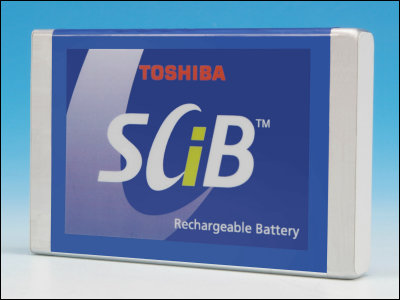Technology to create capacitors with 19 times the energy density is invented by chance

A research team at Washington University in St. Louis has developed a technology that can create a capacitor with 19 times higher energy density than commercially available capacitors. According to the research team, the new technology was discovered by chance during the course of another research project.
High energy density in artificial heterostructures through relaxation time modulation | Science
https://www.science.org/doi/10.1126/science.adl2835

Novel material supercharges innovation in electrostatic energy storage
https://www.newswise.com/articles/view/809791/
EV batteries could last much longer thanks to new capacitor with 19-times energy density that scientists created by mistake | Live Science
https://www.livescience.com/technology/electronics/ev-batteries-could-last-much-longer-thanks-to-new-capacitor-with-19-times-power-density-that-scientists-created-by-mistake
Capacitors are found in most electrical products, including home appliances such as washing machines and refrigerators, as well as smartphones, PCs, and electric cars. Capacitors have the functions of stabilizing voltage, insulating direct current, and removing noise. In addition, capacitors also have the function of storing and discharging electricity, similar to that of batteries.
Batteries can store electricity for a long period of time, but they take a relatively long time to charge and discharge. On the other hand, capacitors can charge and discharge quickly. For this reason, products such as smartphones and electric vehicles are equipped with both batteries and capacitors to achieve both 'long-term storage' and 'fast charging and discharging.'

A research team led by materials engineer Pe Shanhong of Washington University in St. Louis was working on creating a capacitor by layering two-dimensional and three-dimensional structures. The research did not focus on the 'energy density of the capacitor,' but as the experiment progressed, it became clear that the energy density of the capacitor they were developing was unusually high.
As a result of the research team's analysis, it was found that the capacitor under development has an energy density up to 19 times higher than commercially available capacitors. In addition, it was found that the energy efficiency is over 90%. The research team claims that both the energy density and energy efficiency are 'unprecedented values'.
According to the research team, the capacitor maintains a chemical balance between conductive and non-conductive properties, allowing it to retain a charge for a relatively long time. 'Our research results are not 100% optimal, but they already exceed the results of other research teams. Our next step is to improve the material structure so that it can be charged and discharged faster and meet the demand for high energy density. For this capacitor to be used in large devices such as electric vehicles and green technologies currently under development, it needs to be able to retain its charge capacity even after repeated charging and discharging,' the research team said.
Related Posts:







